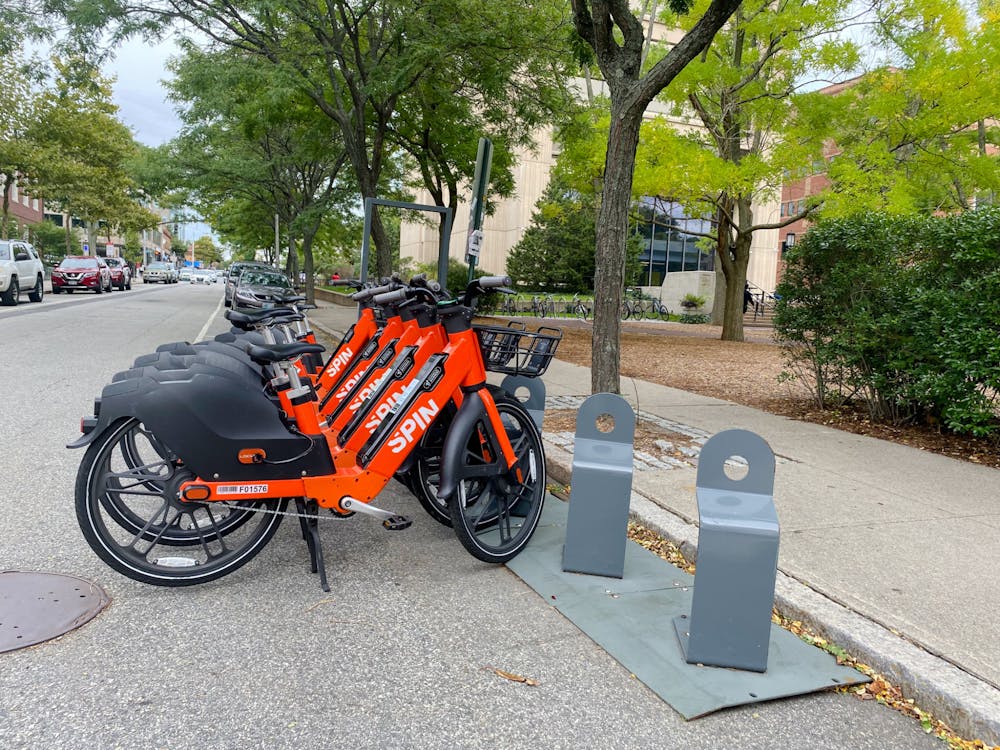Electric scooters brands Bird and Veo have taken to Providence streets, expanding the number of vehicles available.
Mayor Jorge Elorza announced that Veo and Bird would bring scooters to Providence in July as part of the city’s Shared Micromobility Program. Elorza also said that the electric bike and scooter rental company Spin, which has been the only provider operating in Providence for over a year, would increase its vehicle fleet.
Beginning in fall 2018, the program has sought to enhance transportation options by providing commuters with affordable transportation alternatives. But the arrival of the new scooters in Providence has met a mixed reception from the community at large.
With new electric scooter brands gracing the city, the University negotiated separate agreements with the three companies, permitting them to operate vehicles on campus, according to Andrew Grande, director of media relations for the City of Providence.
The concept of “micromobility,” achieved with low-speed, lightweight vehicles that typically travel less than 30 mph, helps individuals who do not own cars as well as those who depend on public transport, said Kurt Teichert, senior lecturer in environment and society.
“Shared bikes and scooters solve the last-mile problem: People are more likely to take public transit if they can easily get to it and there isn’t any driving or parking involved,” Teichert explained. “There are significant environmental benefits to having people use things that run on electricity, especially if they are a substitute for using a car with an internal combustion engine.”
“These (micromobility) programs should lower emissions and reduce the prevalence of automobiles on the streets,” Teichert added.
Spin has recorded over 600,000 rides in Providence over the past year, according to Liza Farr, curbside administrator at the city’s Department of Public Works. An in-app survey found that about 60% of respondents said they were riding in a car less frequently because of the presence of rental scooters, Farr added.
“The program has been very successful in getting riders to opt for it over car-based transportation, which is what we wanted to see,” Farr said. “Bringing Bird and Veo in should lead to more competition and lower prices. We are going to open another round of applications in the winter to bring in other companies as well.”
“I’m pleased to see these new programs being offered. I think the city of Providence has done a great job in trying to make sure scooters are available in as many neighborhoods as possible,” said Teichert.
Despite the environmental benefits of the program, scooter congestion is becoming an issue for some students. “I’ve definitely seen scooters scattered around campus,” said Ahad Bashir ’24. “The biggest issue is where they get parked. It’s annoying when they’re left on the sidewalk and block your path.”
“I’ve also seen one girl get run into by a Spin scooter — they can be pretty dangerous if the rider isn’t paying attention,” Bashir added.
Bashir noted that he does not generally ride scooters across campus, but has taken them on occasion for entertainment purposes or to purchase groceries away from campus.
“Everyone using these scooters has a responsibility to understand the rules,” Teichert said. “As long as people build the infrastructure to allow riders to use these vehicles safely, then that would benefit everyone. I think the city is working on that currently, but there’s still a long way to go.”
“We’re about to go through a mayoral transition, and we don’t know how Mayor-elect Smiley will prioritize” transportation, Farr said. “During the campaign trail, he said he was in favor of building out pedestrian infrastructure. Supporting a plan and implementing it are two different things, and I’m curious to see how he will address the issue.”





